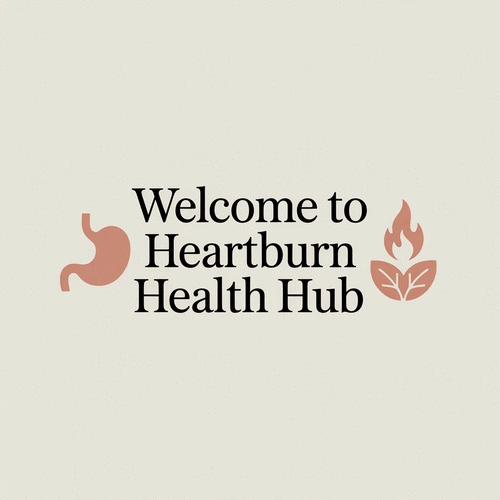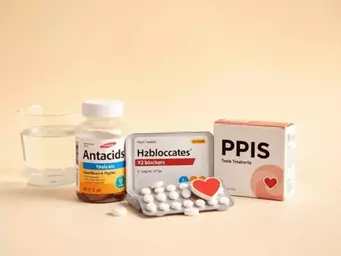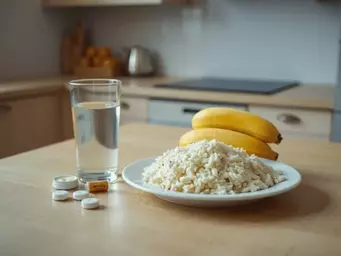What if the secret to a healthier gut is hiding in your fridge? Understanding the roles of probiotics and prebiotics can transform your digestive health. Let's delve into how these elements work together to create a thriving gut environment!
What You Will Learn
- Probiotics are live microorganisms that promote gut health by balancing gut flora and enhancing nutrient absorption.
- Prebiotics are non-digestible fibers that serve as food for probiotics, helping them thrive in the digestive system.
- Both probiotics and prebiotics work synergistically to support gut health and improve immune function.
- Incorporating fermented foods like yogurt and fiber-rich foods such as garlic and bananas into your diet can optimize digestive health.
- Choosing the right probiotic strains, like Lactobacillus or Bifidobacterium, can address specific digestive concerns.
- A personalized approach, including tracking your diet and consulting healthcare professionals, is crucial for effective gut health management.
Probiotics vs. Prebiotics: Gut Health Essentials
Probiotics and prebiotics are both crucial for a healthy gut, but they play distinct roles. This visual highlights their key definitions, mechanisms, and benefits.
Key Synergy: Probiotics & Prebiotics
Together, they create a balanced gut environment, enhancing digestion, immunity, and overall well-being.
Probiotics: The "Good" Bacteria
- ✓ Live microorganisms
- ✓ Balance gut flora
- ✓ Improve digestion & immunity
- ✓ Sources: Yogurt, Kefir, Supplements
Prebiotics: The Fuel
- ✓ Non-digestible fibers
- ✓ Nourish beneficial bacteria
- ✓ Enhance mineral absorption
- ✓ Sources: Garlic, Onions, Bananas
Steps to Improve Gut Health
Incorporate fermented foods, add prebiotic-rich foods, consider supplements, stay hydrated, and consult professionals.
Understanding Probiotics and Prebiotics: Key Definitions and Differences
As someone who's passionate about digestive health, I often encounter confusion around the terms probiotics and prebiotics. These two components play a vital role in maintaining a healthy gut, but they are not the same. Let's break it down to clear up any misconceptions!
Probiotics are live microorganisms that, when consumed in adequate amounts, can provide health benefits, particularly for our digestive system. They are often referred to as "good" bacteria, helping to balance the gut flora and restore harmony in our digestive tract. The World Gastroenterology Organisation provides comprehensive guidelines on probiotics and prebiotics, emphasizing their significant role in gut health.
What Are Probiotics and Their Role in Gut Health?
Probiotics are essential for supporting our gut health. They work by competing with harmful bacteria, preventing them from taking over and causing issues like heartburn and other digestive discomforts. These beneficial bacteria can also enhance nutrient absorption and improve immune response, which is crucial for overall well-being. Recent reviews, such as those highlighted by ISAPP (International Scientific Association for Probiotics and Prebiotics), consistently underscore the extensive benefits of biotic science.
- Support the immune system by fighting off harmful pathogens.
- Improve digestion and nutrient absorption.
- Help reduce symptoms of digestive disorders like IBS and IBD.
Incorporating probiotics into your diet can be as simple as enjoying a serving of yogurt or taking a daily supplement. The key is to ensure you're getting the right strains that cater to your specific needs.
Defining Prebiotics: The Fuel for Beneficial Bacteria
Now that we’ve covered probiotics, let’s talk about prebiotics. Prebiotics are non-digestible food components that nourish the beneficial bacteria in our gut. Think of them as the fuel that keeps probiotics energized and thriving!
- Common sources of prebiotics include fiber-rich foods like garlic, onions, and bananas.
- They help improve digestion and promote the proliferation of good bacteria.
- Prebiotics can enhance mineral absorption, particularly calcium and magnesium.
Adding prebiotic-rich foods to your diet can help create the best environment for those vital probiotics to flourish. This balance is crucial for maintaining optimal digestive health.
Comparing Probiotics and Prebiotics: Similarities and Unique Benefits
While both probiotics and prebiotics are essential for gut health, they serve different purposes. Probiotics are live bacteria, while prebiotics are the food sources for these bacteria. Together, they work synergistically to enhance gut function.
- Similarities: Both contribute to a balanced gut microbiome.
- Unique Benefits: Probiotics directly influence gut health, while prebiotics support the growth of beneficial bacteria.
Understanding the differences between these two can empower you to make better dietary choices for your digestive health. At Heartburn Health Hub, I encourage everyone to explore both options for a holistic approach to gut wellness.
Common Probiotic Strains: Lactic Acid Bacteria, Lactobacillus, and Bifidobacterium
When it comes to probiotics, not all strains are created equal! Some of the most common and effective strains include Lactobacillus and Bifidobacterium. Each of these strains offers unique benefits that can help address various digestive concerns.
- Lactobacillus: Known for improving lactose digestion and reducing diarrhea.
- Bifidobacterium: Helps alleviate symptoms of irritable bowel syndrome (IBS).
- Lactic Acid Bacteria: A group that includes both aforementioned strains, renowned for their role in fermenting food.
Choosing the right probiotic strain is important for addressing specific health concerns. If you’re ever in doubt, feel free to consult with me at Heartburn Health Hub. It's my mission to help you navigate these choices for better digestive health!
Frequently Asked Questions (FAQs)
What is the main difference between probiotics and prebiotics?
Probiotics are live beneficial microorganisms that improve gut health, while prebiotics are non-digestible fibers that act as food for these beneficial bacteria, helping them thrive.
What are some common food sources of probiotics?
Common probiotic-rich foods include yogurt, kefir, sauerkraut, kimchi, and other fermented foods.
Which foods are good sources of prebiotics?
Prebiotic-rich foods include garlic, onions, bananas, asparagus, and other fiber-rich foods.
Can probiotics and prebiotics help with heartburn?
While not a direct cure for heartburn, a balanced gut flora supported by probiotics and prebiotics can improve overall digestion and may help reduce digestive discomforts, including some forms of heartburn.
Is it necessary to take probiotic and prebiotic supplements?
While it's ideal to get probiotics and prebiotics from food sources, supplements can be beneficial if dietary intake is insufficient or if you have specific digestive concerns. Always consult a healthcare professional before starting any new supplement.
We Want to Hear From You!
How do you incorporate probiotics and prebiotics into your daily routine? Share your favorite sources or recipes below:
Summarizing the Impact of Probiotics and Prebiotics on Gut Health
As we wrap up our discussion on probiotics and prebiotics, it’s essential to highlight their critical roles in supporting gut health. Probiotics are live beneficial bacteria that help maintain our gut flora, while prebiotics serve as food for these good bacteria. Together, they create a balanced environment in our digestive system, helping to improve overall health and well-being.
We've explored how these components not only contribute to digestive health but also impact our immune function, mental health, and metabolism. Here’s a quick recap of what we covered:
- Definitions: Probiotics are live microorganisms; prebiotics are non-digestible fibers that feed probiotics.
- Benefits: Both improve digestive health, support the immune system, and may enhance mental well-being.
- Applications: Incorporating natural food sources and potentially supplements can optimize gut health.
Encouraging a Personalized Approach to Gut Health
Every individual has unique digestive needs, so it’s crucial to take a personalized approach when considering probiotics and prebiotics. What works wonders for one person might not have the same effect on another. This is why I always recommend keeping a food diary to track what you eat and how it affects your gut. Over time, you'll discover patterns that can guide your dietary choices. Even for children, the impact of probiotics and prebiotics can be significant, as shown in studies like those published in JAMA Pediatrics, which highlights their effects on the gut microbiome.
At Heartburn Health Hub, we believe in empowering you with the knowledge and tools necessary to take charge of your gut health. Whether it’s adjusting your intake of fermented foods or ensuring you get enough fiber, every small change can lead to significant improvements!
Taking Action: Steps to Improve Your Gut Health Today
Practical Tips for Daily Incorporation of Probiotics and Prebiotics
Let’s dig into some practical tips that can help you easily include probiotics and prebiotics in your daily routine. Here are some suggestions to get you started:
- Incorporate fermented foods into your diet, such as yogurt, kefir, sauerkraut, and kimchi.
- Add prebiotic-rich foods like garlic, onions, bananas, and asparagus to your meals.
- Consider a quality probiotic supplement if you're not getting enough from food sources.
- Stay hydrated—water is essential for digestion and helps fiber do its job!
Making these simple adjustments can significantly impact your gut health over time. Remember, it’s about consistency—not perfection!
Connecting with Healthcare Professionals for Personalized Advice
While self-exploration is valuable, connecting with healthcare professionals can offer a tailored approach to your gut health journey. Speaking with a gastroenterologist or a registered dietitian can provide insights into your unique needs. They can help identify specific triggers, suggest appropriate supplements, and establish a diet plan that works for you.
At Heartburn Health Hub, I’m here to guide you through understanding your digestive health better. Don’t hesitate to reach out for personalized advice!
Understanding the Role of Antibiotics and Their Impact on Gut Flora
Lastly, it’s important to consider the impact of antibiotics on your gut flora. While antibiotics are essential for treating infections, they can disrupt the balance of beneficial bacteria in your gut. If you must take antibiotics, here are a few tips to minimize their effects:
- Talk to your doctor about probiotic supplementation during and after the course of antibiotics.
- Consume a diet rich in fiber and fermented foods post-treatment to help restore gut flora.
- Be patient; it may take time for your gut to rebalance following antibiotic use.
By understanding the effects of antibiotics and actively managing your gut health, you can foster a healthier digestive environment. Remember, every step you take is a step towards better health!
Recap of Key Points
Here is a quick recap of the important points discussed in the article:
- Definitions: Probiotics are live microorganisms; prebiotics are non-digestible fibers that feed probiotics.
- Benefits: Both improve digestive health, support the immune system, and may enhance mental well-being.
- Applications: Incorporating natural food sources and potentially supplements can optimize gut health.
- Sources: Include fermented foods and fiber-rich foods in your diet for better gut health.
- Personalization: Track your food intake to understand what works best for your digestive health.










